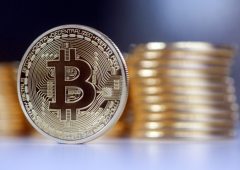Kraken Gears Up for IPO with $1 Billion Debt Raise and Major Acquisition
25.03.2025 10:00 1 min. read Alexander Zdravkov
Kraken is making a bold move to accelerate its growth, reportedly seeking to raise $1 billion in debt as it prepares for a potential public listing.
According to Bloomberg, the cryptocurrency exchange is working with financial powerhouses JPMorgan and Goldman Sachs to secure funding, while also considering an equity raise to further strengthen its financial position.
The idea of Kraken going public has been circulating for years. Initially, the exchange planned to enter the public markets in 2022 through a SPAC merger, but those plans were postponed. Now, with a seemingly more favorable regulatory landscape, Kraken may be ready to take the next step.
The appointment of Carrie Dolan as CFO in 2022 was a strong indication of its IPO ambitions, given her track record of managing LendingClub’s 2015 public debut, which was one of the largest internet IPOs in U.S. history.
Beyond its IPO ambitions, Kraken has been actively expanding its presence in the broader financial sector. Earlier this month, the company made a major move by acquiring futures broker NinjaTrader in a $1.5 billion deal, signaling its push into traditional finance.
With Coinbase setting a precedent by going public in 2021, Kraken appears to be positioning itself as the next major crypto exchange to take the leap into the stock market.
-
1
UK Regulators Unveil PISCES – A New Era for Private Share Trading
11.06.2025 15:00 2 min. read -
2
Trump Turns 79 With Billions in Crypto and a $45M Parade
14.06.2025 22:00 2 min. read -
3
Polygon Breaks from Decentralization as Sandeep Nailwal Assumes Full Control
11.06.2025 20:00 2 min. read -
4
KuCoin Plants Its Flag in Bangkok With a Licensed Thai Exchange
14.06.2025 13:00 1 min. read -
5
Nvidia CEO Urges UK to Invest in AI Infrastructure or Risk Falling Behind
10.06.2025 9:00 1 min. read
What Will Happen With the Stock Market if Trump Reshapes the Fed?
Jefferies chief market strategist David Zervos believes an upcoming power shift at the Federal Reserve could benefit U.S. equity markets.
U.S. Bank Advises Clients to Drop These Cryptocurrencies
Anchorage Digital, a federally chartered crypto custody bank, is urging its institutional clients to move away from major stablecoins like USDC, Agora USD (AUSD), and Usual USD (USD0), recommending instead a shift to the Global Dollar (USDG) — a stablecoin issued by Paxos and backed by a consortium that includes Anchorage itself.
Vitalik Buterin Warns Digital ID Projects Could End Pseudonymity
Ethereum co-founder Vitalik Buterin has voiced concerns over the rise of zero-knowledge (ZK) digital identity projects, specifically warning that systems like World — formerly Worldcoin and backed by OpenAI’s Sam Altman — could undermine pseudonymity in the digital world.
What Are the Key Trends in European Consumer Payments for 2024?
A new report by the European Central Bank (ECB) reveals that digital payment methods continue to gain ground across the euro area, though cash remains a vital part of the consumer payment landscape — particularly for small-value transactions and person-to-person (P2P) payments.
-
1
UK Regulators Unveil PISCES – A New Era for Private Share Trading
11.06.2025 15:00 2 min. read -
2
Trump Turns 79 With Billions in Crypto and a $45M Parade
14.06.2025 22:00 2 min. read -
3
Polygon Breaks from Decentralization as Sandeep Nailwal Assumes Full Control
11.06.2025 20:00 2 min. read -
4
KuCoin Plants Its Flag in Bangkok With a Licensed Thai Exchange
14.06.2025 13:00 1 min. read -
5
Nvidia CEO Urges UK to Invest in AI Infrastructure or Risk Falling Behind
10.06.2025 9:00 1 min. read


